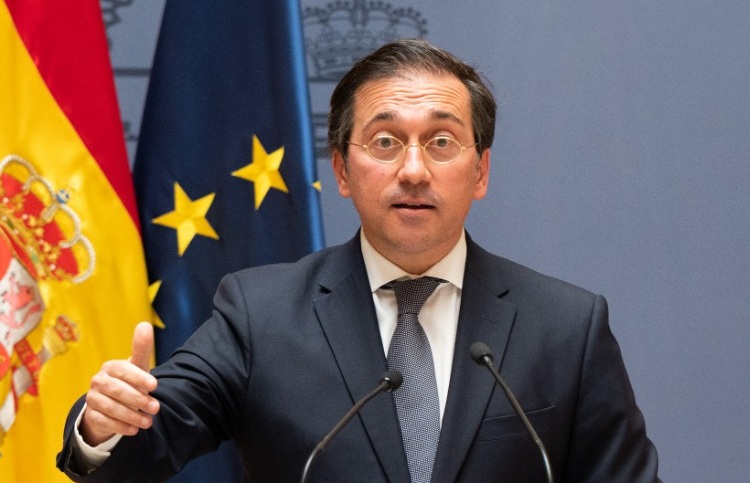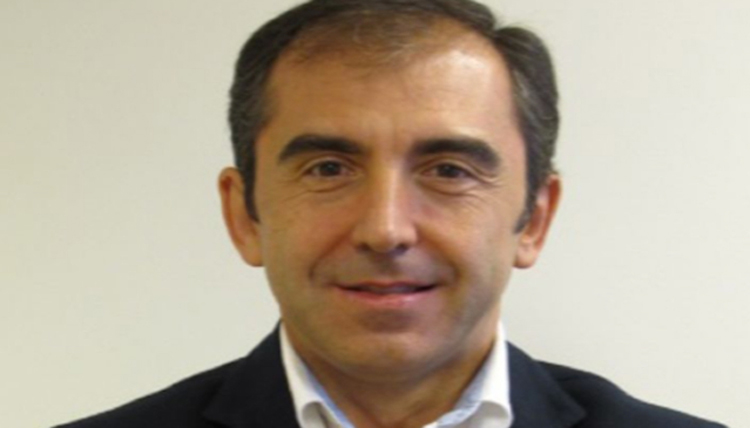Luis Ayllón
The Minister of Foreign Affairs, José Manuel Albares, promised diplomats’ associations that he would seek ways to improve aid and family conciliation measures for civil servants posted abroad, according to a letter sent by the Board of Directors of the Association of Spanish Diplomats (ADE) to its members.
The letter, to which The Diplomat has had access, reflects the content of the meeting that the ADE, the Association of Spanish Diplomatic Women (AMDE), ExterioresEsDiverso (which brings together the LGTBQ group) and the Association of Families of Diplomats and Foreign Service Officials (AFD) held on 30 July with the new head of Foreign Affairs and the new undersecretary of the department, Luis Cuesta.
In the letter, the ADE, which represents more than 65 percent of the members of the diplomatic career, thanks the minister for having held meetings with them and the trade union representatives a few days after taking office, as well as for having quickly addressed the problem of vaccination for foreign service personnel.
It also explains that the president of the ADE, Jorge Hevia, who was accompanied by the vice-president, Carlos Medina, explained to the minister the main demands of the diplomats, among which he cited – the letter indicates – “those related to working conditions such as the lack of personnel in Madrid and abroad, especially in the Consulates, and the insufficiency of the current service commissions”.
Another of the main demands put to Albares has to do with the family conditions of diplomats posted abroad: revision of schooling allowances, the annual settlement ticket, the work of spouses and partners, and measures in favour of conciliation.
According to ADE, the Minister asked for time to address these issues and encouraged the Associations to remain united in their demands. “He expressed his concern to find measures to support family conciliation, which he considers important for both women and men, and advocated a singular treatment for civil servants with families posted abroad,” says the letter.
The ADE considers that, “given the frustration with the almost nil progress in recent years on many of these issues, the Superiority now has within its reach the possibility of achieving improvements that will undoubtedly be appreciated and recognised by Foreign Service personnel”.
ADE tells its members that the minister acknowledged “the difficulty of the task and the incomprehension that any improvement in the conditions of diplomats arouses in part of society and in other ministries”, but “promised to strive for concrete achievements in these areas”. Albares, the letter says, added that he himself, as a diplomat, has been aware of these problems and that, although they also affect officials in other ministries, he is aware that it must be the foreign minister who leads the search for solutions.
The letter points out that the representatives of the Association of Families of Diplomats and Foreign Service Officials “reiterated at the meeting the neglect suffered by the spouses, partners and children of this group for years and denounced the sad situation in which our country finds itself in this area, unfortunately far behind the vast majority of our European partners”.
For her part, the representative of AMDE explained the demands that they have been defending since their creation and explained several programmes that they have promoted in recent times, such as mentoring and talks at the University.
The representatives of ExteriorEsDiverso referred to the progress made since the platform was set up and asked for concrete improvements to be made in the daily lives of the members of the group.
According to ADE, the Minister asked for a reasonable amount of time to address all these issues, instructed the Undersecretary to ensure the continuity of the current dialogue and promised to dedicate effort and time to the above issues.
Furthermore, in relation to the new Diplomatic Career Regulations, the participants in the meeting asked about the Minister’s intentions regarding the current draft, and advocated the desirability of approving the new text, albeit by opening a final period of consultation. ADE’s letter adds that “it seems that the new team will soon address this issue”.
We are convinced,” the letter adds, “that the frustration generated in recent years by the lack of concrete progress can give way, if specific improvements are achieved, to a new phase that will undoubtedly be very well received by the sacrificed and committed human resources that currently make up our country’s Foreign Service.







